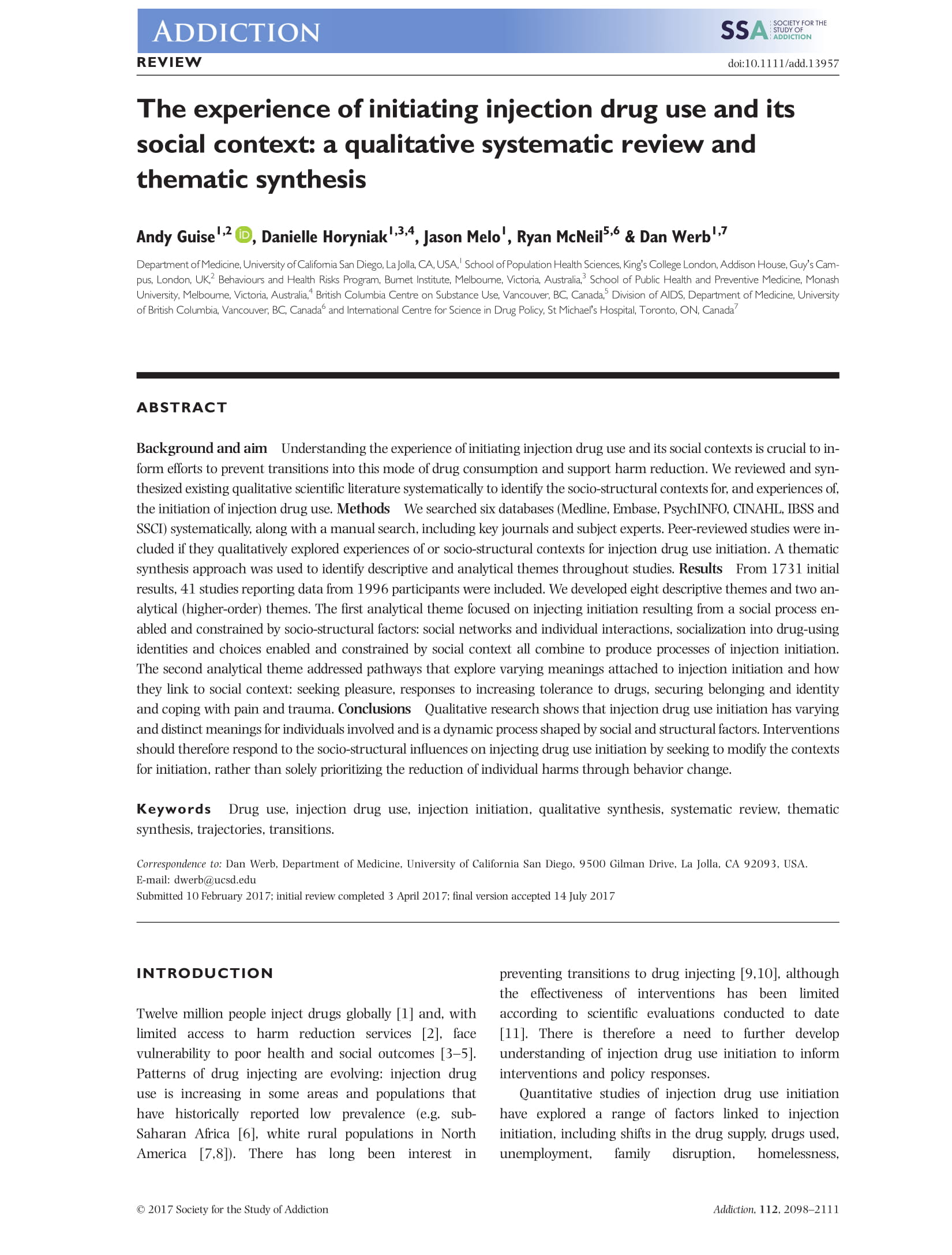Interventions to Prevent the Initiation of Injection Drug Use: A Systematic Review
Abstract
Background: Injection drug use has been identified as a key source of morbidity and mortality, primarily from overdose and the transmission of blood-borne diseases such as HIV. Experts have therefore called for the prioritization of resources toward the prevention of injection drug use. However, these strategies have not been systematically assessed.
Methods: PRISMA guidelines were used to systematically review and extract findings from the peer-reviewed literature evaluating the effectiveness of interventions to prevent injecting initiation. We searched 10 English language electronic databases (PubMed, PsycINFO, EMBASE, Cochrane CENTRAL, CINAHL, Web of Science, TOXNET, AIDSLINE, AMED and ERIC), the Internet (Google, Google Scholar), and article reference lists, from database inception to June 1st, 2012.
Results: Overall, out of 384 studies identified in the initial search, eight met the inclusion criteria. Studies evaluated four different types of interventions: social marketing, peer-based behavior modification, treatment, and drug law enforcement. Four studies observed a significant effect of the intervention on reducing rates of injecting initiation. Peer-based behavior modification and addiction treatment interventions were found to be most effective. Two of three studies assessing the impact of drug law enforcement on patterns of injecting initiation found no impact on injecting initiation, while one study reported inconclusive results.
Conclusion: There exists a limited scientific literature on strategies to prevent injecting initiation. Resources should be allocated toward increased research and development of effective interventions to prevent this phenomenon.
View the full article.


